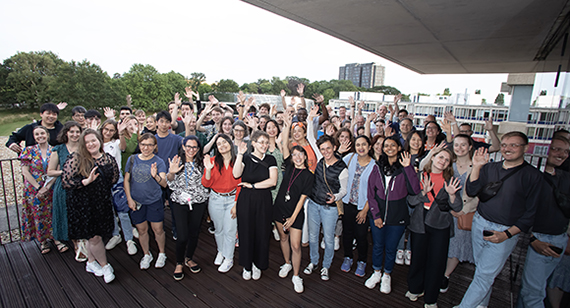Please note: This course will be delivered in person at the Colchester campus. Online study is not available for this course.

Karen O’Reilly is Emeritus Professor of Sociology at Loughborough University and a Freelance Researcher and Training Provider. She has taught ethnographic and qualitative methods for over 25 years, including the Essex Summer School, the Swiss Summer School in Social Science Methods, in Lugano, and at universities in the UK, Germany, Norway, and Hong Kong. Karen is a highly experienced ethnographer and qualitative researcher whose many publications include two widely cited books on ethnography: Ethnographic Methods (Routledge, 2nd ed. 2012) and Key Concepts in Ethnography (Sage, 2009). Karen provides training for the Social Research Association on a regular basis, as well as bespoke training in qualitative research methods. Her research is in the field of sociological understandings of lifestyle migration and harvest migration.
Course content
Ethnography is an increasingly popular style of research, employed in both long-term and short-term studies in creative ways across the social sciences. This course provides a comprehensive introduction to the technical, practical and philosophical issues that arise when employing traditional and innovative ethnographic methods. Ethnographers typically immerse themselves in a setting for a period of time, listen, ask questions; and supplement observation with the analysis of interview data, documents, and visual and digital data. Such an intrusion into the social setting presents a challenge to the ‘received view of science’ but ethnographic methods have proven, over time, to provide valid, valuable and rich contextual data with which to understand complex social issues. This course covers the following topics: participant observation and contemporary applications; hypotheses, abduction and serendipity; accessing the field; writing fieldnotes; making sense of observational data and telling credible stories; multi-sited, virtual, visual and sensory ethnography; applied ethnography; and reflexivity, ethics, and the emotions in fieldwork.
The course is applied, encouraging participants to think intellectually about each topic area in relation to their own research interests, and to carry out and begin to analyse micro-observational studies.
Course objectives
By the end of the course participants should: Be confident to make close, theory-oriented observations through participation, observation, and conversation. Be equipped to record and analyse the data produced through diverse methods. Take a critical and creative approach to ethnographic methods and understand how they can be combined with other methods of data collection for a range of social, political and policy research areas. Take a reflexive and ethical approach to ethnographic encounters. Be in a position to present and defend the quality and value of ethnographic interpretations.
Course Prerequisites
The course is introductory but intensive, rapidly taking participants from a beginner’s to an advanced level. Some prior familiarity with qualitative methods and a background knowledge of the philosophy of social science is required. Participants should be aware that the practical decisions to be made when conducting ethnographic research are necessarily theoretically-informed and will vary with each practitioner’s disciplinary orientation. The course aims to equip participants with the knowledge required to make those decisions for themselves in practice.
Representative Background Reading
This is a list of options you can dip into if you wish. Participants are not required to do any prior reading
- O’Reilly, K. 2009. Key Concepts in Ethnography, London: Sage
- O’Reilly, K. 2012. Ethnographic Methods, 2nd. Ed. London: Routledge ISBN: 9780203864722. This book will be provided by ESS
- Cubellis, L. C. Schmid and S. von Peter. (2021) Ethnography in Health Services Research: Oscillating Between Theory and Practice. Qualitative Health Research https://doi.org/10.1177/10497323211022312
- Pink, S. et. al. 2022 Design Ethnography. Research, Responsibilities, and Futures, London: Routledge
- Or browse the journals: Ethnography, Journal of Contemporary Ethnography, Entanglements.


